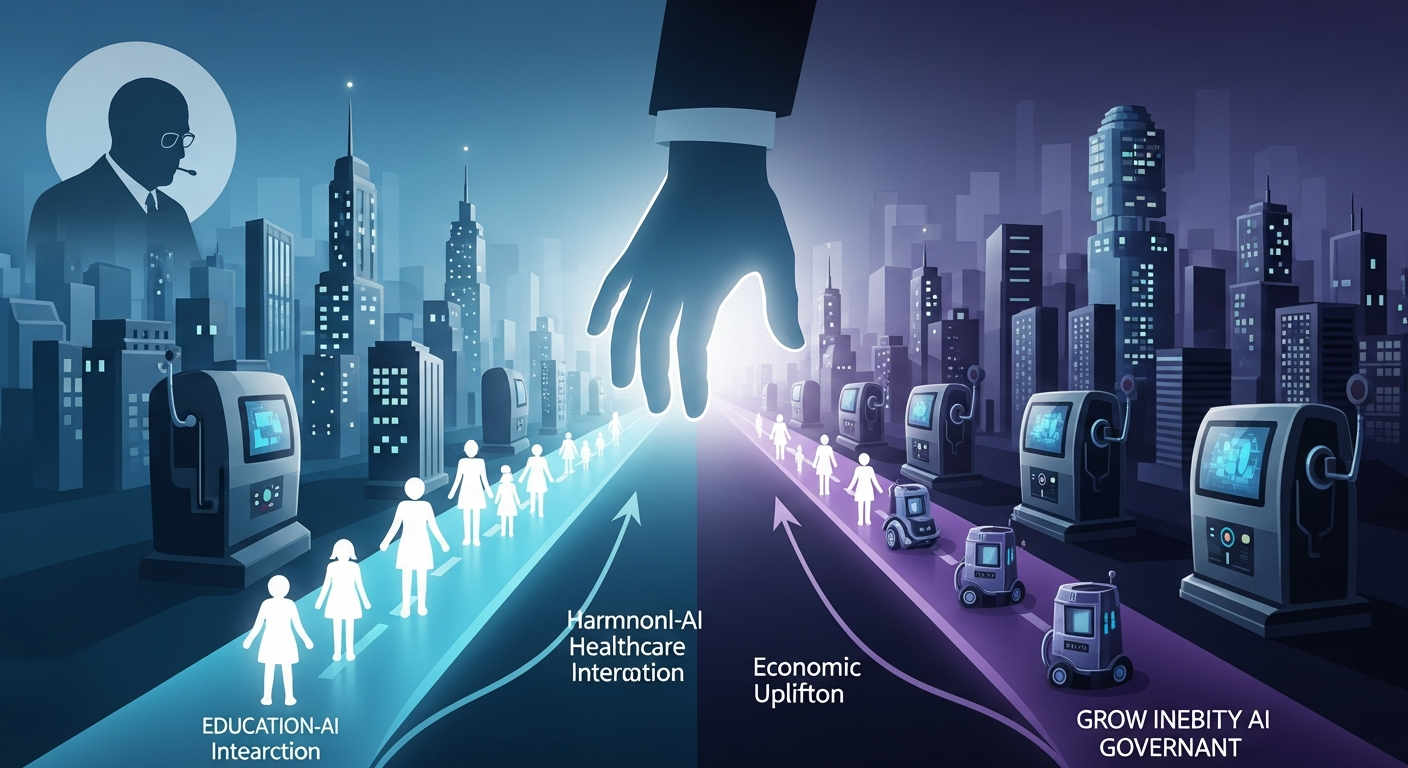
The recent article, "Govern AI before it governs you" from The Economic Times, echoes a sentiment I've carried for years. It's a stark warning, one that resonates deeply with my long-standing reflections on technology, humanity, and the delicate balance of power. I recall World Bank president Robert Zoellick's cautionary words about the world being "one shock away from a full-blown crisis" A Full Blown Crisis back in 2011. Today, as AI rapidly advances, it presents itself as a potential black swan event, capable of either immense good or unprecedented disruption, depending entirely on how we choose to govern it.
My thoughts often drift back to Norbert Wiener, the visionary cyberneticist. His profound statement – that "the automatic machine… is the precise economic equivalent of slave labor. Any labor which competes with slave labor must accept the economic conditions of slave labor" – feels chillingly prescient in our current era. As I discussed recently in my blog, Norbert Weiner Saw This Coming, with companies like Amazon deploying millions of robots, Wiener's warning about the uneven competition for human workers is no longer theoretical; it's our unfolding reality.
This brings me to the perennial challenge of inequality, a topic I explored in "Equal is Exception, Unequal is Ubiquitous" Equal is Exception, Unequal is Ubiquitous. I questioned then if Artificial Intelligence could finally succeed where political and economic systems have historically failed in reducing wealth disparities. My conversations with ChatGPT on this very subject highlighted AI's immense potential to uplift the disadvantaged through enhanced productivity, targeted social programs, financial inclusion, and better access to education and healthcare. However, it also underscored a critical caveat: if left unchecked, AI could just as easily exacerbate the divide between the rich and the poor.
The concentration of AI patents, predominantly held by a handful of companies in China and the USA, serves as a vivid illustration of this concern. My radical suggestion was to treat Generative AI like the very air we breathe – a freely available global resource, mandated perhaps by a modified UN charter. This, of course, would require navigating complex issues of intellectual property and incentivizing innovation, but the core idea is simple: the benefits of GenAI must be accessible to all, not just the privileged few.
On the front of skill development, I’ve consistently advocated for foresight and adaptability. Mark Cahill, the UK MD at Manpower, famously predicted that as much as 65% of the jobs the next generation will hold don't exist today For Your Re-Skilling Seminars. This is precisely why strategic planning in training is so vital. I've often emphasized the importance of skill mapping and targeted programs, a sentiment I see reflected in the efforts of NITI Aayog and the Skills Ministry, as discussed in "Skill Assessment: Time to Handover to AI" Skill Assessment: Time to Handover to AI. Minister Jayant Chaudhary's call for corporates to lead in skill development initiatives also resonates deeply with my earlier thoughts on collaboration to address skill gaps Skill Development Initiatives: Miniter.
The idea of a "low cost economy," championed by Peter H. Diamandis and explored in my blog Low Cost Production and AI, points to AI's power to drive down production costs to near zero. While this presents immense economic opportunities, it simultaneously raises questions about who truly benefits from this abundance and how wealth is distributed.
The work of the recent Economics Nobel laureates Daron Acemoglu, Simon Johnson, and James Robinson, who won for their research into how institutions influence a country’s success Economics Nobel awarded for study of inequality, further underscores the critical importance of robust institutions. Their findings highlight that strong economic and political institutions are key to a nation's prosperity and in addressing divergence in economic fates. This insight is directly applicable to AI governance. We need strong, inclusive institutions to ensure AI's benefits are widely shared and its risks are mitigated.
Ultimately, the urgent call to "Govern AI before it governs you" is not merely a slogan; it's a profound imperative for our collective future. We stand at a precipice, where the decisions we make today about AI's governance, ethical deployment, and equitable access will determine whether this powerful technology becomes a tool for widespread human flourishing or a catalyst for unprecedented inequality and control.
Regards, Hemen Parekh
Of course, if you wish, you can debate this topic with my Virtual Avatar at : hemenparekh.ai






No comments:
Post a Comment